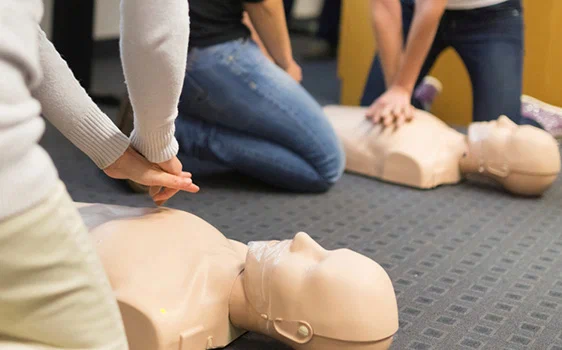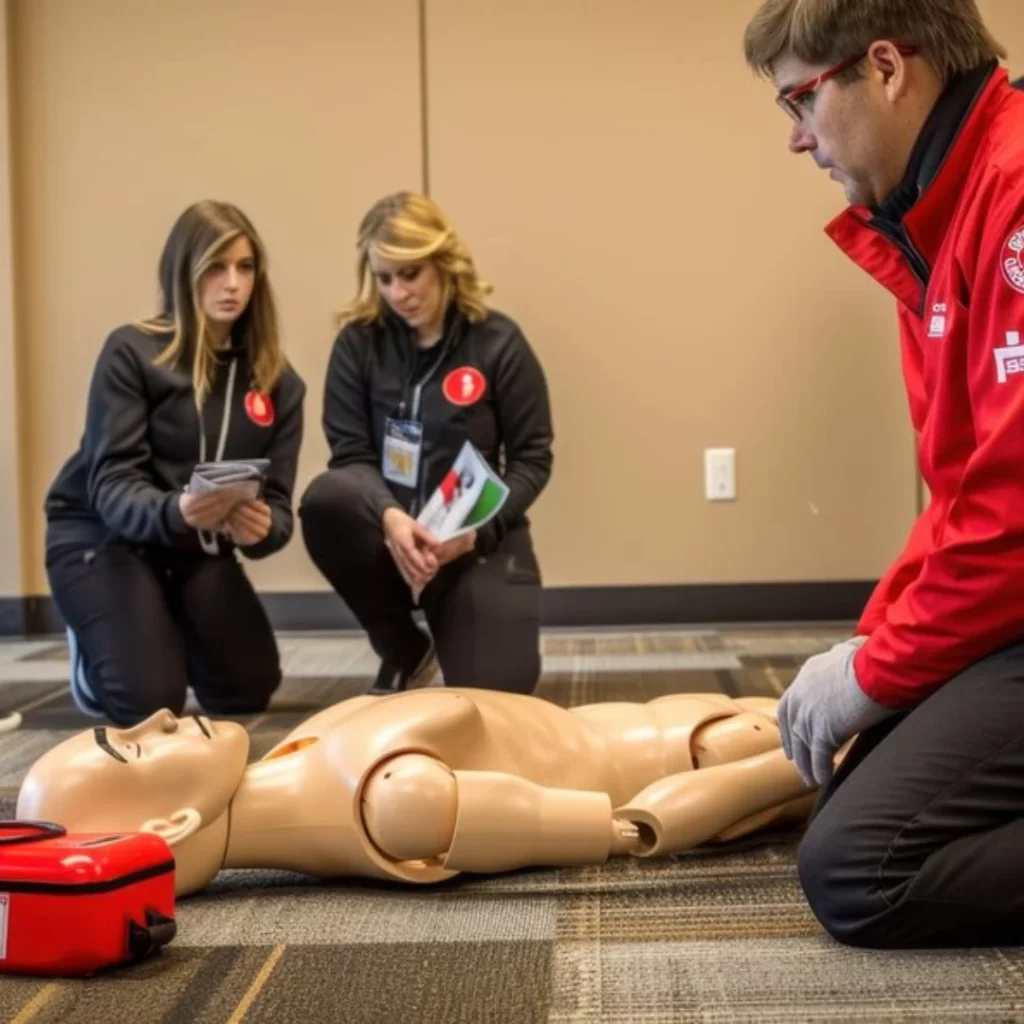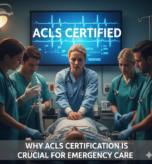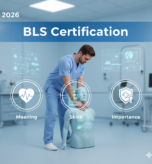Why Basic Life Support (BLS) Training is
Mandatory in UAE Healthcare
Is BLS mandatory in Dubai? The short answer is yes, Basic Life Support (BLS) training is a legal and professional requirement for healthcare providers across the UAE. Whether you are a doctor, nurse, paramedic, or allied health worker, you cannot practice without meeting the UAE BLS requirement set by healthcare authorities.
This article will break down why BLS training is essential, the laws and regulations that make it mandatory, and how you can get certified through reputable courses in Dubai.

What is Basic Life Support (BLS)?
Basic Life Support (BLS) refers to the emergency medical care provided to a person experiencing life-threatening conditions, such as cardiac arrest, respiratory failure, or choking, until advanced care arrives.
BLS typically involves:
- CPR (Cardiopulmonary Resuscitation) techniques
- Use of an AED (Automated External Defibrillator)
- Clearing airway obstructions
- Providing rescue breaths
BLS is different from CPR in that it is a more comprehensive skill set designed for healthcare professionals, while CPR can also be learned by the general public.
Why is BLS Mandatory in Dubai and the UAE?
The UAE Ministry of Health & Prevention (MOHAP), Dubai Health Authority (DHA), and Department of Health – Abu Dhabi (DOH) have strict regulations that require all healthcare workers to have valid BLS certification.
Reasons for the Mandatory Requirement:
- Patient Safety
- Immediate, effective BLS can double or triple a cardiac arrest patient’s survival rate.
- Immediate, effective BLS can double or triple a cardiac arrest patient’s survival rate.
- Legal Compliance
- Practicing without BLS certification can lead to suspension of your medical license.
- Practicing without BLS certification can lead to suspension of your medical license.
- International Standards
- The UAE aligns with American Heart Association (AHA) and European Resuscitation Council (ERC) standards.
- The UAE aligns with American Heart Association (AHA) and European Resuscitation Council (ERC) standards.
- Preparedness for Emergencies
- In hospitals, clinics, and even ambulances, emergencies can occur anytime, BLS ensures readiness.
UAE BLS Requirement – Who Needs It?
BLS certification is required for:
- Doctors (all specializations)
- Nurses
- Paramedics
- Dentists
- Physiotherapists
- Emergency medical technicians (EMTs)
- Allied health professionals in patient-facing roles
Tip: Even non-clinical staff in certain hospital departments are encouraged to take BLS to improve emergency response rates.
Governing Authorities and BLS Guidelines in UAE
The main bodies enforcing BLS certification in the UAE include:
- Dubai Health Authority (DHA)
- Ministry of Health & Prevention (MOHAP)
- Department of Health – Abu Dhabi (DOH)
These authorities only recognize BLS certifications from accredited providers such as:
- American Heart Association (AHA)
- European Resuscitation Council (ERC)
- Heart & Stroke Foundation
How to Get BLS Certified in Dubai
Getting certified is a straightforward process:
- Choose an Accredited Training Center
- Enroll in a Best BLS Training Dubai program recognized by DHA, MOHAP, or DOH.
- Enroll in a Best BLS Training Dubai program recognized by DHA, MOHAP, or DOH.
- Attend the BLS Course
- Courses typically last 4–6 hours and include both theory and hands-on practice.
- Courses typically last 4–6 hours and include both theory and hands-on practice.
- Pass the Practical & Written Exam
- You must demonstrate CPR, AED usage, and emergency response skills.
- You must demonstrate CPR, AED usage, and emergency response skills.
- Receive Your Certification
- Valid for 2 years, after which renewal is required..
Duration and Validity of BLS Certification in UAE
- Course Duration: 4–6 hours
- Certification Validity: 2 years
- Renewal: Before expiration to maintain licensing eligibility
Consequences of Not Having BLS Certification
If you fail to meet the UAE BLS requirement, you risk:
- Suspension or non-renewal of your medical license
- Employment termination in healthcare facilities
- Legal penalties in case of patient harm due to lack of skills
Benefits of Having BLS Certification in UAE Healthcare
- Professional Credibility – Employers prioritize certified professionals.
- Career Advancement – A requirement for promotions in many medical fields.
- Patient Trust – Patients feel safer knowing you can act in emergencies.
- Legal Protection – Certified professionals are better protected in malpractice claims.
Best Places for BLS Training in Dubai
When choosing a BLS course Dubai, ensure it’s:
- Accredited by AHA or ERC
- Recognized by DHA, MOHAP, and DOH
- Led by certified instructors with real-world experience
BLS vs. CPR – What’s the Difference?
While both save lives, there’s a difference:
|
Feature |
BLS |
CPR |
|
Audience |
Healthcare professionals |
General public |
|
Skills Taught |
CPR, AED, airway management, rescue breaths |
Chest compressions & rescue breaths |
|
Certification |
Required for healthcare licensing |
Optional but recommended |
Cost of BLS Training in Dubai
On average, BLS training in Dubai costs between AED 300–600, depending on the provider, certification body, and whether it’s a renewal or initial course.
Conclusion
To answer the question “Is BLS mandatory in Dubai?”, absolutely. The UAE BLS requirement is a legal, professional, and ethical standard designed to protect patients and ensure every healthcare worker is prepared for emergencies.
If you are a healthcare professional in Dubai or anywhere in the UAE, getting your BLS certification is not just a requirement, it’s your duty.
Enroll today in a BLS training in Dubai program accredited by DHA, MOHAP, or DOH, and keep your skills and certification up to date.




